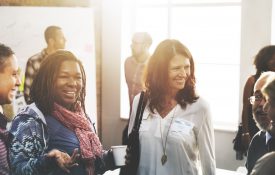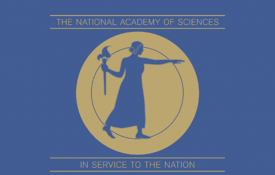-

How to Get People to Care About Inequality
Personal contact increases psychological investment in equality by making people more empathetic, increasing personal relevance, and humanizing those in other ethnic groups.
-
Americans Are A Lonely Lot, And Young People Bear The Heaviest Burden
Loneliness isn't just a fleeting feeling, leaving us sad for a few hours to a few days. Research in recent years suggests that for many people, loneliness is more like a chronic ache, affecting their daily lives and sense of well-being. Now a nationwide survey by the health insurer Cigna underscores that. It finds that loneliness is widespread in America, with nearly 50 percent of respondents reporting that they feel alone or left out always or sometimes. --- But the results are consistent with other previous research, says Julianne Holt-Lunstad, a psychologist at Brigham Young University, who studies loneliness and its health effects. She wasn't involved in the Cigna survey.
-
To Reduce Sexual Misconduct, Help People Understand How Their Advances Might Be Received
The revelations of the #MeToo movement seem to have caught many men by surprise.
-

National Academy of Sciences Welcomes Two APS William James Fellows
APS Past President Mahzarin R. Banaji and Barbara Landau are among 84 new members elected to NAS in recognition of their outstanding contributions to research.
-
To treat pain, study people in all their complexity
Last month, the US National Institutes of Health (NIH) formally launched a multi-agency effort to combat the country’s opioid-addiction crisis. Funds for research into controlling opioid misuse and treating pain will nearly double in 2018, to US$1.1 billion. The forces behind this epidemic extend beyond overprescription: most of the tens of thousands of deaths caused by opioid overdose in the United States each year result from illicit use. Still, an inadequate understanding about how to treat pain has certainly contributed. We need to characterize patients better, and we need more studies that incorporate non-drug treatments alongside any form of medication.
-
Why it’s ridiculous that high schools start so early in the morning
According to the National Sleep Foundation and a grass-roots coalition called Start School Later: Biological sleep patterns shift as children grow up, and it is natural for teens to find it difficult to fall asleep before 11 p.m. Teens need about eight to 10 hours of sleep each night to function best. Most teens do not get enough sleep. The Centers for Disease Control and Prevention’s Youth Risk Behavior Survey in 2015 showed that 73 percent of U.S. high school students get less than eight hours of sleep on school nights. Forth-three percent reported getting six or fewer hours.

